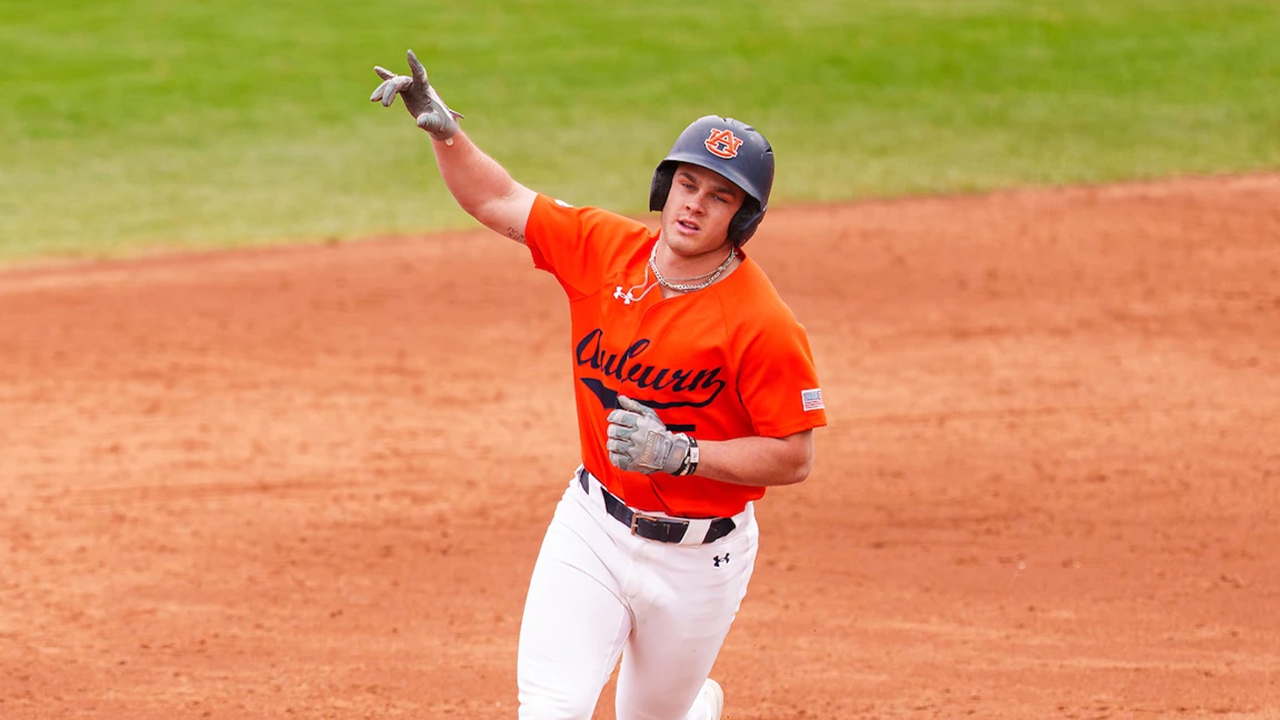| Harbert: |
Let’s start with the basics – how did you and your Auburn teammates Maggie Richard
and Luke Sexton manage to get to the finals of the America’s region for the third
consecutive year to begin with? How many teams in your region vied for those highly
coveted three spots? |
| Nick: |
As for who we were up against, there were more than 100 teams from across the North
Americas region competing for a spot in the finals – some of the highest-ranked programs
in business education. As for how we did it? Getting to the national finals once again
wasn’t easy by any stretch, but in my opinion, the “secret” to Harbert’s unprecedented
record of success is two-fold – it all comes down to willingness of all team members
to go above and beyond coupled with the tremendous, virtually unlimited support we
are blessed with here at Auburn. |
| Harbert: |
Let’s start with the team – can you describe the process and how you and your colleagues
approached the challenge as a team? |
| Nick: |
Sure. All teams in this year’s competition were provided information on a hypothetical
digital media company serving the sports and entertainment industry. We all were tasked
with the same three objectives:
- The first was to provide an analysis of the industry in which the hypothetical company
operates…a market analysis.
- The second was to conduct an equally deep analysis of the phantom company itself,
including – importantly – establishing a valuation.
- Third – and perhaps most important – we all were tasked with creating a strategy and
plan of action for raising $50 million in capital to support the hypothetical company’s
progress going forward.
These three components of the challenge demand a wide range of skills and a high level
of cooperation from team members. While there were individual steps and tasks to be
completed, it was the integration of those tasks into a clear, concise and compelling
pitch that made the difference. That process required each and every one of us to
work together to ensure all the parts fit. Each of us had to step up and deliver our
individual contributions while also being mindful of how those contributions needed
to be framed in the overall pitch. |
| Harbert: |
Moving on to the support you cite as the second key component of success. Can you
elaborate? What resources were available to you and how did that contribute to your
team’s success? |
| Nick: |
While we are a student-run organization, the Auburn FMA program wouldn’t be where
it is today without Tracy Richard, Director of the Integrated Financial Leadership
Program in the Department of Finance. It all begins with Tracy. She started the FMA
program at Auburn and, in fact, Tracy was the first person I spoke with when I transferred
to Auburn as a junior.
It was clear to me from the start that she cares deeply about Auburn and Auburn students
– FMA or not, she wants us to be successful. And she’s been willing to put her reputation
on the line for her students to make sure we get all the opportunities available to
us here at Harbert.
|
| Harbert: |
But it doesn’t end there in terms of the support you received, does it?
|
| Nick: |
Not by a long shot. Our team’s success wouldn’t have been possible without the insight,
guidance and relentless support we received from our FMA predecessors.
I’d start with Kennedy Jarvis, she’s a Senior at Auburn and FMA President. As a senior,
she’s not eligible to participate directly again, but she generously served as a critical
source of mentorship for this year’s team. She and the other FMA alums were eager
to pay back the support they received in the past – that was invaluable.
I’d also like to thank Jimmy Brewster and Krista Alexton – both FMA alums – for their
support. They never hesitated to answer our questions or hop on a call with us to
walk through the various aspects of the model we were developing and the presentation
we were creating.
|
| Harbert: |
That sounds like “paying it back” or “paying it forward,” depending on how you look
at it. |
| Nick: |
Exactly. I’d say both. What you’ll find with FMA alums is that they value their experiences
in FMA so much that they want the next class of FMA at Auburn to have even more success,
even better opportunities than they did.
That’s the DNA of Auburn’s FMA program. We’d like nothing better than to help next
year’s Auburn team succeed. We’re here because of the great guidance and help we received
along the way, and we want to pay that effort and value back to Auburn students, especially
the next class of FMA.
|

 Degrees & Programs
Degrees & Programs
 Faculty & Staff
Faculty & Staff
 Career Development
Career Development
 Recruiters & Industry
Recruiters & Industry



